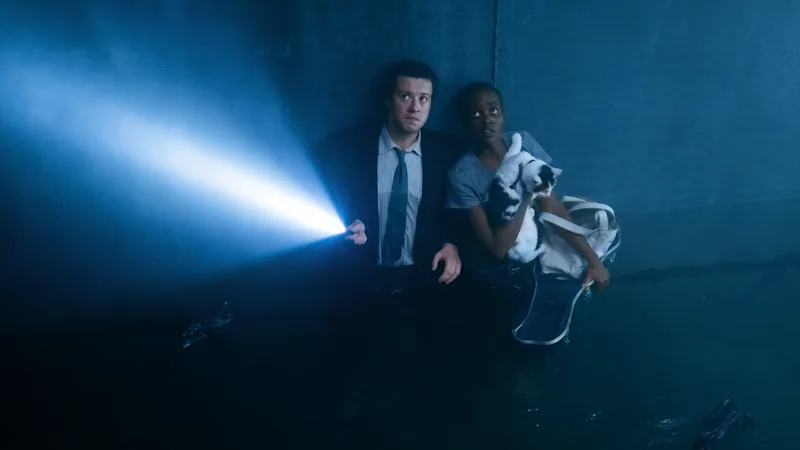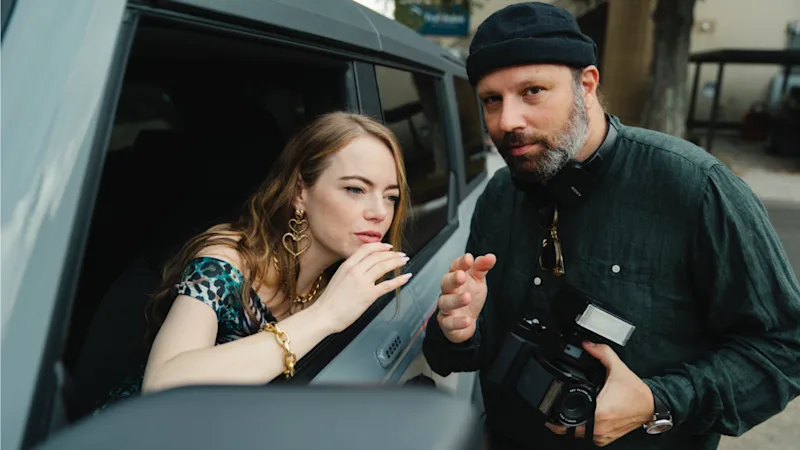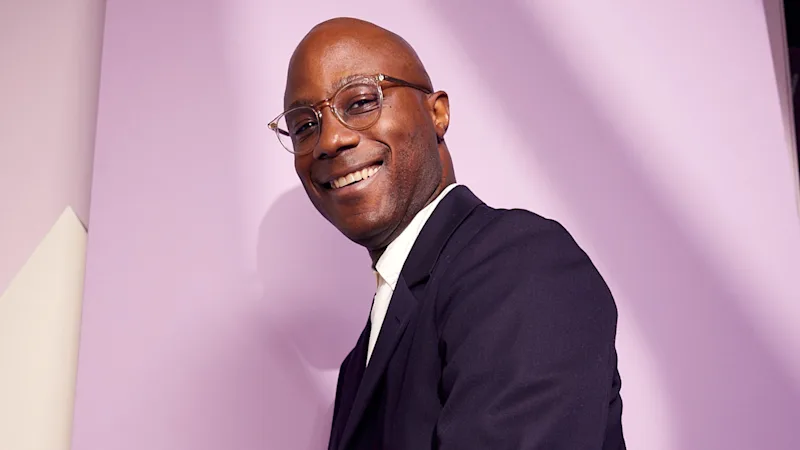

At the start of 2020, Petra Costa had just come off three intense years of making The Edge of Democracy, her documentary about the sociopolitical divide in Brazil. “We were working seven days a week, 18 hours a day, and didn’t have time to think about anything else,” she said. By the new year, Petra wanted to be surrounded by nature and take a pause for reflection. What once seemed impossible soon became the only option thanks to the novel coronavirus. From the Atlantic Forest near São Paulo, where she’s remotely directing a new project, Petra spoke to us about her journey into film and her Oscar-nominated doc.
The personal meets the political
I grew up in the beginning of Brazilian democracy, after 21 years of a brutal military dictatorship that my parents fought against. Social consciousness was always very present in my house. Since I was very little, I had an interest in the theater and the arts, but a feeling that it was a very privileged thing to do in a country that is so unequal. And that always created a tension inside me. That’s why I went to study theater, then anthropology, and then went into documentary filmmaking. I wanted to dedicate myself to my personal search for art, but at the same time, there was this political force in tension with it.
Through filmmaking, I’ve found a path that allows me to both investigate personal matters and also, through the camera, enter into other people’s lives and into the social reality that surrounds me, and explore the tension between both of them. That’s what I’ve been trying to do with the films I have made.
I started off trying to make two very social documentaries that were very driven by the content. I didn’t have much relationship to the form. And clearly, they weren’t shaping up as something that was strong. They were just about external realities. It’s like Pina Bausch said: “I’m not interested in how people move, but in what moves people.” I wasn’t getting to what moves people, and to do that, you have to have a relationship to the form. Once I started to learn more and more about the form, I allowed myself to tell stories that were very intimate to me.
My first film [2009’s Undertow Eyes] is about my grandparents, a very intimate exploration. Right after finishing that short film, I had a dream about my sister, where I died. You never die in a dream, so I woke up very shocked, and realized that it wasn’t me who died but actually it was her. This confusion of identities was something that I was very interested in exploring because my sister committed suicide when she was 21, and I was 7. Her suicide was quite taboo, except for my mother, who always spoke to me freely about it.
As I grew up, people started calling me by her name [Elena], or saying that we were similar, and I was haunted by the idea that I would have the same destiny as her, what I call the Ophelia Complex, after Hamlet’s girlfriend in the Shakespeare play. Both Hamlet and Ophelia perceive that there is something sick in the Danish society that surrounds them, and while Hamlet goes out to kill, Ophelia decides to kill herself. So the anger goes inside, which I think is a very feminine way of dealing with pain. As I was coming of age, I felt that quite intensely, that I was drowning in my own emotions, and I think that is what happened with Elena. As I made the film [2012’s Elena, a documentary about her sister, actress Elena Andrade], I found out that was also what happened in my mother’s coming-of-age. So it’s a film about these three women, and about this female difficulty of coming of age. I felt it was still not very explored in cinema, because it’s kind of a quiet, invisible suffering.
The film was the result of all these years of coming to terms with all these issues, but I made it in a moment where they were no longer so strong, so it was like looking back at a past life.
Documenting a present life
The idea for The Edge of Democracy came in sensing that there was something intense happening, but not really knowing what it was until I saw The Battle of Chile by Patricio Guzmán. In watching that film, about the coup in Chile in the ’70s, I noticed many things that I was seeing in the streets in Brazil but couldn’t identify—the elites not accepting an elected government and doing everything to bring that government down. It seemed that the end would be the impeachment of our first female president, Dilma Rousseff, but the story kept escalating and escalating until the election of [Jair] Bolsonaro. With that film, the sensation was of vertigo in many ways. We felt the ground had fallen to its limit, and then there was another earthquake and another one and another one.
It was this feeling of bottomless vertigo—and that feeling continues with more and more abuses of the rule of law happening today, and it’s hard to know how far we’re going to go down this rabbit hole that seems to be taking us into the past.

At the first protest that I filmed in March of 2016, I saw more than that. I saw a rise of a fascist hate in the street, like an adoration for everything that was militaristic and hate for anything that seemed progressive, independent of the party.
It’s clear in the scene in the film where a boy is holding a sign against Dilma, but he’s wearing red. He has to be escorted out by the police because all the protesters dressed in the Brazilian flag, very nationalistic, want to attack him because he’s wearing red. This level of hatred and intolerance that is so connected to fascism was very clear and frightening and appalling. I had the immediate desire to investigate where that was coming from—and where it would lead us.
It was clear that I needed to make this film, and it was a good instinct because from then on, every week something huge would happen. That’s how it felt for three years.
“There’s no democracy.”
Every interview I would do, I would make myself available to that person’s opinions. I interviewed many people that were in favor of the impeachment, and in several instances, I started to feel convinced by them. Then, when I read How Democracies Die by Steven Levitsky and Daniel Ziblatt something clarified for me, which was already my instinct: Whenever someone would defend the impeachment, they would say that it was constitutional.
What Levitsky and Ziblatt say so well about how democracies die is that a constitution is a very weak document to protect democracy because it can be so easily manipulated. What protects democracy are two unwritten laws, which are forbearance and mutual respect: knowing that you have at your disposal all the instruments to destroy your opponent, but you won’t do it out of respect. Like in a soccer game. You won’t abuse the tricks you can use for the health of the game, so that people can continue playing a good game, right? That’s what happened with Brazil’s impeachment.
In the film, there’s an interview with a woman sitting at the stair of the presidential palace. She’s a cleaning lady at the presidential palace, and for me, it’s the best interview in the film, where she says, “I didn’t vote for her. I didn’t particularly support her. But the way she was kicked out of here makes me not believe in democracy anymore. There’s no democracy.”
It just ripped up our vote. And that’s what led people to vote for Bolsonaro, was someone who was anti-system since the beginning.
After the film was released globally by Netflix, we would see tweets daily of people in Turkey and India, in Uruguay, in the United States, in the UK, saying this is exactly what’s happening in their country. Brazil is, in a way, an augmented mirror of what is happening in the U.S., because we have fewer checks and balances and our institutions are weaker. The current crisis of democracy is a result of that.
Tags
The Edge of Democracy2019






